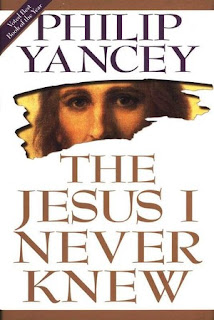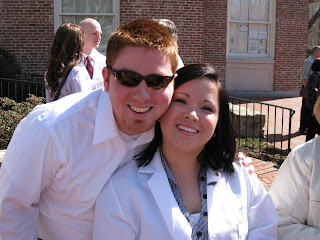 One of the best books I've read recently is a true story. Same Kind of Different As Me is an enthralling tale of two unlikely friends whose lives come together forever changing one another for the better.
One of the best books I've read recently is a true story. Same Kind of Different As Me is an enthralling tale of two unlikely friends whose lives come together forever changing one another for the better.The book was recommended to me a while back by my friend Vicki, who I think has read every book ever worth reading. And this being the second good book I've read after her suggestion, I'll be sure to read almost anything she puts in front of me.
Ron Hall is a wealthy and successful art Texas art dealer who lives the aristocratic life in the Dallas-Fort Worth area. After following his wife Debbie's lead they end up volunteering at and falling in love with a local homeless mission and soup kitchen in the "wrong" end of town. There, they meet Denver Moore, a career homeless man feared by the other street dwellers, who grew up picking cotton in the Louisiana sharecropper market and has never really owned anything in his life.
The book also has a third author, Lynn Vincent who, I believe, was brought on to aid in the actual writing process. If I am right then she did a good job, because the book reads very smoothly and has wonderful, detailed but not overly lengthy descriptive qualities which left me tense during suspense moments and sad during the heartbreaking scenes. The story was told from the two perspectives of Denver and Ron, alternating each chapter. In typical Dan Brown style, this method of storytelling kept the book in my hands.
I learned that only a few decades ago, Louisiana share croppers who were predominantly black, though legally free, were more like modern day slaves. Always in debt to the Man, these illiterate workers were neglected of education and thus other life options. The Man did all the book keeping so the workers never knew how in debt they were or weren't. For twenty something years of Denver's life he worked for the Man, earning no paycheck and stayed in a third-world quality shanty house with no running water, electricity or indoor plumbing. One day, Denver, fed up after losing another loved one, hopped a train and wound up in Dallas/Fort Worth.

Befriended by Ron and Debbie Hall, Denver gets his first look into the lives of rich people and with candid honesty points out some of the ludicousies of such life. The Halls also get a real life look into what a life of homelessness looks like and what it does to a man. Denver, though often offered to sleep in a nice house or hotel, feels safer sleeping outside and on the ground.
There's an eye-opening moment when Denver and Ron enter the lobby of a downtown hotel. Denver remarks saying he's never been in this hotel or any hotel lobby. Ron replies, "Did you never even walk in the lobby here? I think all hotel lobbies are open to the public." Looking Mr. Ron in the eye, Denver replied, "Homeless folks ain't no public."
The book is more than a simple compelling story about life, love, happiness and pain. It also causes the reader to reflect on many pertinent social topics such as homelessness, prejudice, sickness, suffering, forgiveness and faith. Around 235 pages, I read it in a week and am a better person for it.
Same Kind of Different As Me deserves the coveted "Nathan-Two-Thumbs-Up" and is a recommended read to every reader I know. It's a quick read that, when you finish it, will leave you laughing, crying and warm, ready to face one more difficult day of life.
Disclaimer: Disclosure of Material Connection: I received this book free from Thomas Nelson Publishers as part of their BookSneeze.com http://BookSneeze.com book review bloggers program. I was not required to write a positive review. The opinions I have expressed are my own. I am disclosing this in accordance with the Federal Trade Commission’s 16 CFR, Part 255 http://www.access.gpo.gov/nara/cfr/waisidx_03/16cfr255_03.html> : “Guides Concerning the Use of Endorsements and Testimonials in Advertising."







